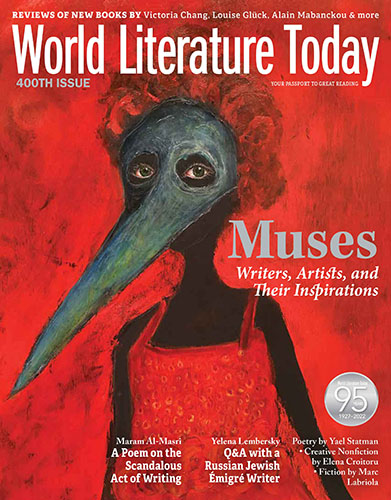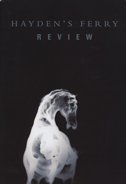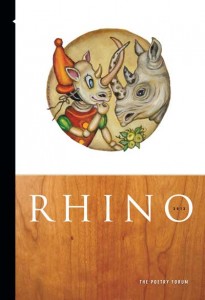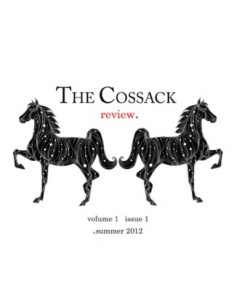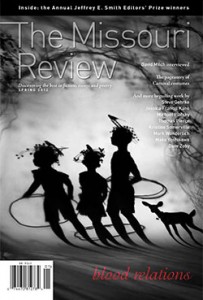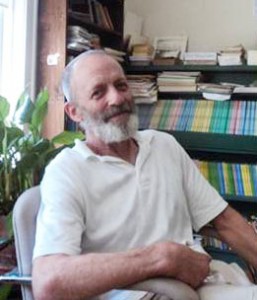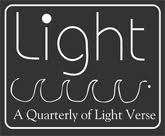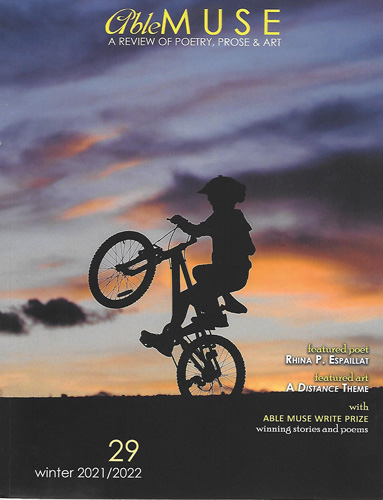Edited by Christine Gosnay and Ruben Quesada, The Cossack Review is a tri-annual publication of new fiction, poetry, original translations, creative nonfiction, essays, photography, illustrative art, and reviews. The Cossack Review can be read online (PDF, Kindle) or in print as of Issue 2 (due out October 1) with additional online content.
Gosnay explains that the name of the publication is a historical reference: “The appearance of Cossacks – Slavic peoples, often mounted on horseback, militaristic, proud, flawed, and complicated – in Russian literature has always fascinated me. Their appearance as confounding, almost mythic characters who ride in, seize, disturb, take note, and then return to their land was explored by Gogol, Tolstoy, Pushkin, Tsvetaeva and many other writers. Naming the journal The Cossack Review is a nod to the quality of power, troubled mythos, unsettling beauty, and quest for understanding that great writing imparts to its readers.”
With such a strong historical connection to literature, Gosnay says she started The Cossack Review as a way to continue this tradition: “As a reader of literary journals and magazines who has often known the unique joy of discovering a poem or short story that reveals something I never knew about the world, I wanted to build a journal that could focus on just that – showcasing exceptional new writing that delights, and that uncovers truths about our shared experience. Issue 1 showcases beautiful, surprising poetry and fiction that is rich with imagery, pathos, humor, and psychological understanding. Stories that you wouldn’t believe, that make you read twice. Nonfiction that understands you, that can relate and teach, and is enhanced by stunning photography to accompany the writing.”
The inaugural issue of The Cossack Review features poetry by Paul David Adkins, Maureen Alsop, Jacob Cribbs, Adam Crittenden, Oliver de la Paz, William Doreski, Teneice Durrant Delgado, Brian Gatz, Anne Haines, T.R. Hummer, Russell Jaffe, Lindsey Lewis Smithson, Linda Martin, Charles McCrory, Kristina Moriconi, John Palen, John Phillips, Tim Suermondt, José-Flore Tappy, and Eric M.R. Webb; fiction by Soren Gauger, Kimberly Hatfield, Bryan Jones, Olive Mullet, Patty Somlo, and David Swykert; and nonfiction by Robert Boucheron, Valery Petrovskiy, Phillip Polefrone, and Apryl Sniffen.
Gosnay and Quesada have great plans for the journal, which will go into print on October 1, 2012 with the launch of Issue 2. It will be featured in bookstores around the San Francisco Bay Area and beyond. On off-months, they will be featuring an online supplement. The Cossack Review staff is also looking forward to attending the AWP 2013 Conference in Boston and starting a reading series as well in the new year.
Submissions are accepted year-round for print editions of the journal as well as the online supplements. The editors encourage you to send in your best unpublished poetry, fiction, and nonfiction via Submittable. Simultaneous submissions are welcome.
The Cossack Review is also looking to bring on a fiction editor soon and welcomes inquiries if you are interested in becoming a submissions reader for their journal.

